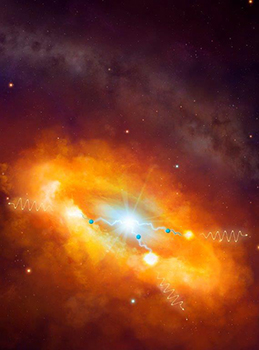Latest News Archive
Please select Category, Year, and then Month to display items
26 January 2022
|
Story Rulanzen Martin
|
Photo University of the Western Cape
 The late Prof Jaap Durand.
The late Prof Jaap Durand.
The management of the University of the Free State (UFS) is saddened to learn of the passing of Prof Jaap Durand, revered theological academic and author. Prof Durand obtained his master’s degree from the UFS and received an honorary doctorate in Philosophy from the UFS in 2004.
Prof Durand has had a colourful career as academic, writer, and struggle activist: from Professor of Systematic Theology and Dean of the Faculty of Theology at the University of the Western Cape to Deputy Vice-Chancellor of the same university. He also served as the ombudsman of Stellenbosch University from 2002 to 2003.
During his life, Prof Durand was a unifier and a critical voice, speaking out against injustice. He has also authored several books, including Dit is amper dag; Evolusie, wetenskap en geloof, and Protesstem.
The UFS joins the higher education community in mourning and is deeply saddened by the loss of such a great theologian and academic. We wish to convey our deepest condolences to Prof Durand’s family, friends, and loved ones during this time.
Two scientists part of team that discovers the source of the highest energy cosmic rays at the centre of the Milky Way
2016-03-22

Artist's impression of the giant molecular clouds surrounding the Galactic Centre, bombarded by very high energy protons accelerated in the vicinity of the central black hole and subsequently shining in gamma rays.
Artist's impression: © Dr Mark A. Garlick/ H.E.S.S. Collaboration Spotlight photo:
Dr Brian van Soelen and Prof Pieter Meintjes of the UFS Department of Physics.
Photo: Charl Devenish
|
H.E.S.S. (High Energy Stereoscopic System) scientists publically revealed their latest galactic discovery in the international science journal, Nature, on 16 March 2016. These scientists were able to pinpoint the most powerful source of cosmic radiation – which, up to now, remained a mystery.
Part of this team of scientists are Prof Pieter Meintjes and Dr Brian van Soelen, both in the University of the Free State (UFS) Department of Physics. Dr Van Soelen explains that they have discovered a proton PeVatron – a source that can accelerate protons up to energies of ~1 PeV (10^15 eV) – at the centre of the Milky Way. The supermassive black hole called Sagittarius A has been identified as the most plausible source of this unprecedented acceleration of protons.
The protons are accelerated to Very High Energy (VHE) gamma rays. The energy of these protons are 100 times larger than those achieved by the Large Hadron Collider at CERN (the European Organization for Nuclear Research).
According to Dr Van Soelen, the fact that this research has been published in Nature demonstrates the importance and pioneering nature of the research conducted by H.E.S.S. The H.E.S.S. observatory – operational in Namibia – is a collaboration between 42 scientific institutions in 12 countries.
In 2006, H.E.S.S. was awarded the Descartes Prize of the European Commission – the highest recognition for collaborative research – and in 2010 the prestigious Rossi Prize of the American Astronomical Society. The extent of the observatory’s significance places it among the ranks of the Hubble Space Telescope and the telescopes of the European Southern Observatory in Chile.
“The next generation VHE gamma-ray telescope,” Dr Van Soelen says, “will be the Cherenkov Telescope Array (CTA), which is currently in the design and development stage.” Both Dr Van Soelen and Prof Meintjes are part of this project as well.
H.E.S.S. has issued a complete statement about the paper published in Nature.